
Find Help
More Items From Ergsy search
-

Is there a difference between the basic State Pension and the new State Pension?
Relevance: 100%
-

How do I claim the basic State Pension?
Relevance: 86%
-
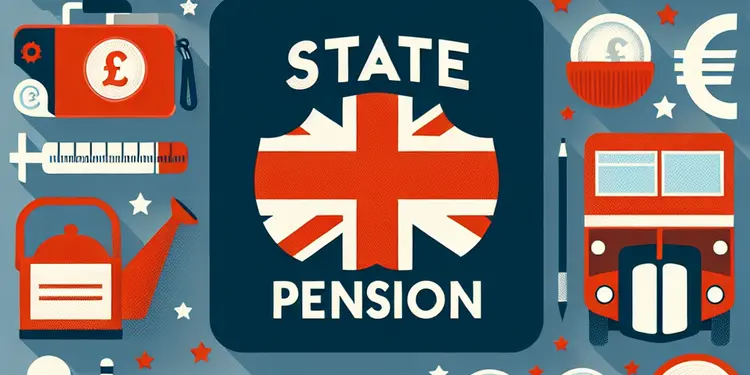
Is the basic State Pension enough to live on?
Relevance: 86%
-

Do I pay tax on the basic State Pension?
Relevance: 85%
-

Who is eligible for the basic State Pension?
Relevance: 85%
-
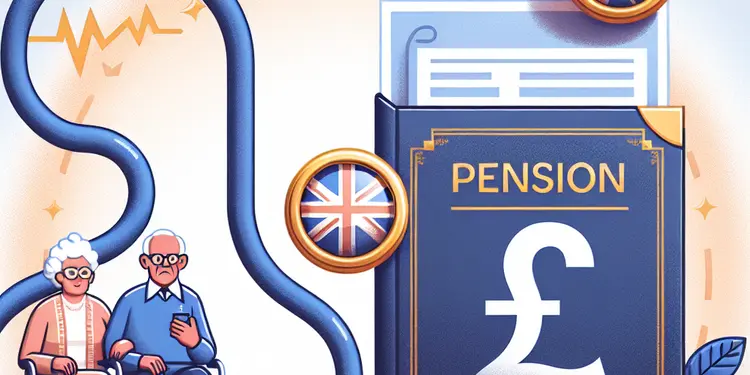
Can my spouse inherit my basic State Pension?
Relevance: 84%
-
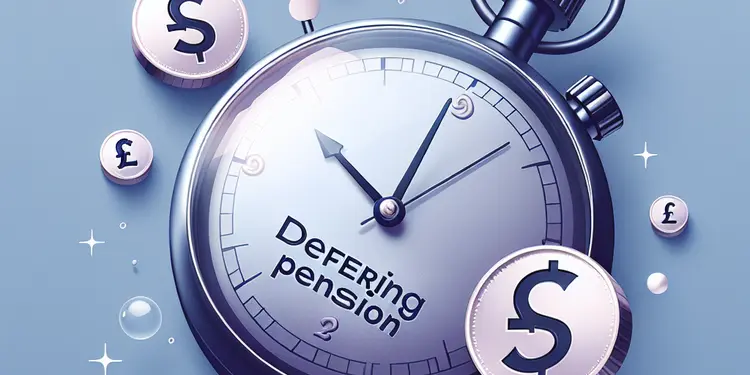
Can I defer my basic State Pension?
Relevance: 83%
-

Can I get the basic State Pension if I’m self-employed?
Relevance: 83%
-

Will I qualify for the new state pension?
Relevance: 83%
-
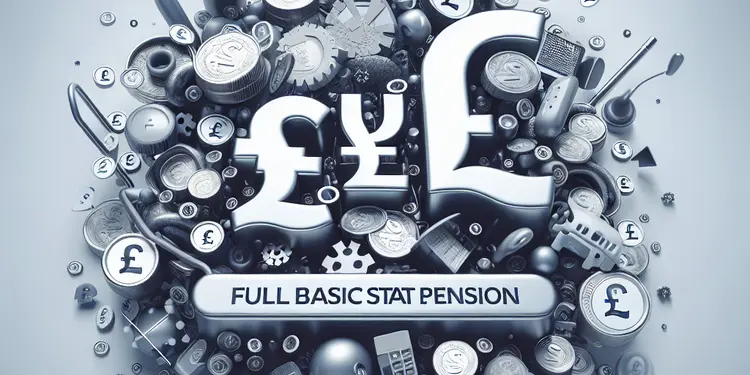
How much is the full basic State Pension per week?
Relevance: 80%
-

How much extra will I get if I defer my basic State Pension?
Relevance: 77%
-

What is the basic pension in the UK?
Relevance: 75%
-
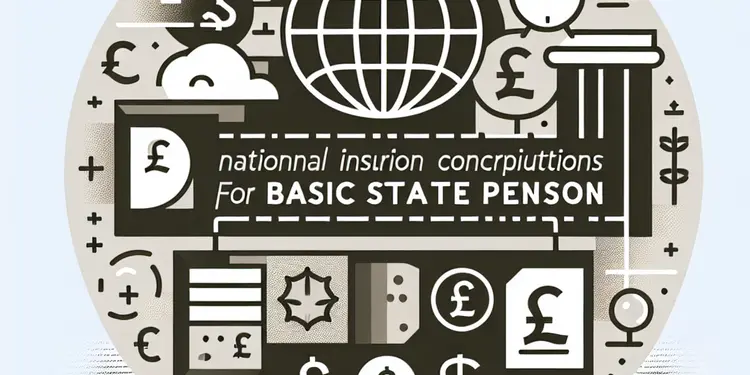
How many National Insurance contributions do I need for the basic State Pension?
Relevance: 73%
-

Are there credits available for the basic State Pension if I can't work?
Relevance: 72%
-

Can I receive the basic State Pension if I have less than 30 qualifying years?
Relevance: 71%
-

State Pension UK | How much will I get? | WILL IT LAST FOREVER?!?
Relevance: 71%
-
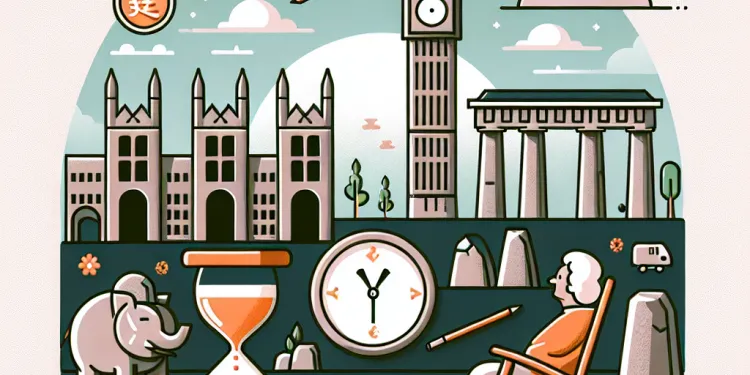
What is the new planned state pension age after 2028?
Relevance: 66%
-

What is the state pension age in the UK in 2026?
Relevance: 66%
-

What are the state pension age changes in 2026 in the UK?
Relevance: 64%
-

Will the state pension amount change with the age increase?
Relevance: 64%
-

When will the state pension age increase to 67?
Relevance: 63%
-
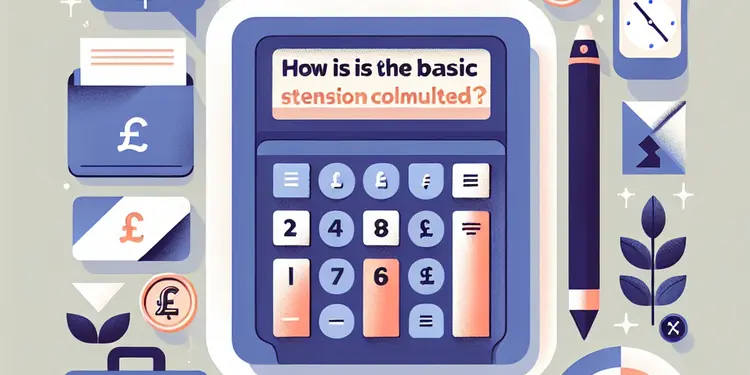
How is the basic State Pension calculated?
Relevance: 63%
-

Are there any changes to the state pension age in 2026?
Relevance: 63%
-
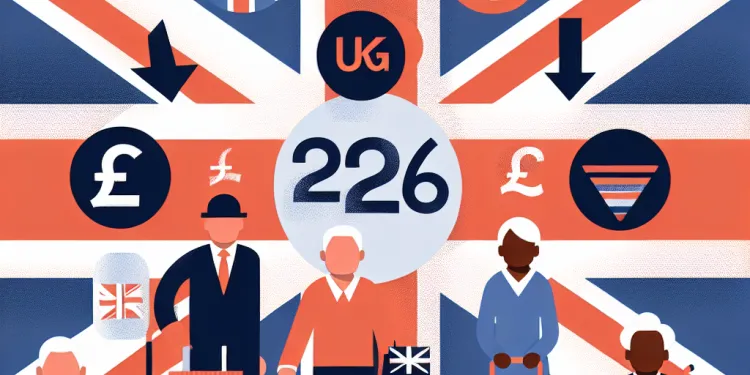
Who will be affected by the state pension age changes in 2026?
Relevance: 63%
-
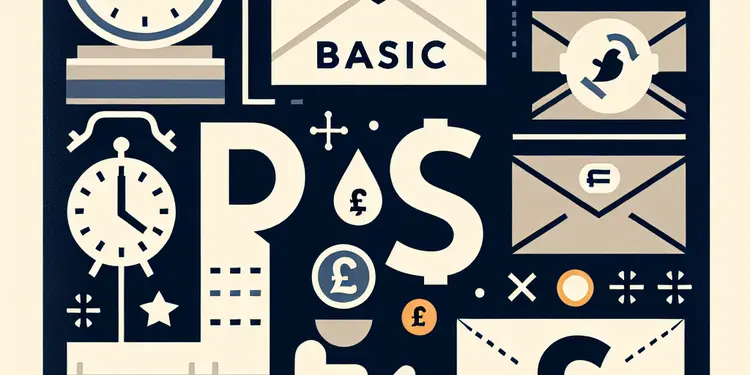
When is the basic State Pension paid?
Relevance: 62%
-

Is there any assistance for those who cannot work up to the new state pension age?
Relevance: 61%
-

How can I find out my specific state pension age?
Relevance: 60%
-
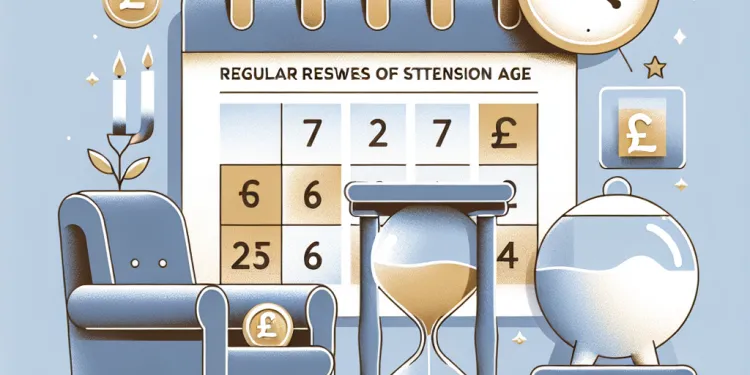
How often does the UK government review the state pension age?
Relevance: 59%
-

Will I lose my basic State Pension if I start working after reaching State Pension age?
Relevance: 59%
-
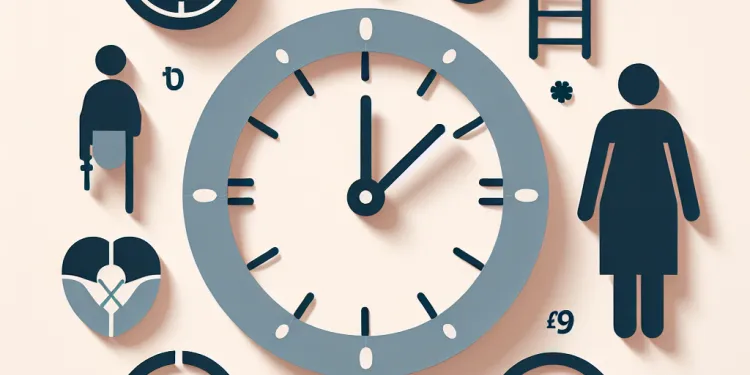
What demographic factors influence changes to the state pension age?
Relevance: 59%
-

What age group will first see the state pension age at 67?
Relevance: 58%
-

Can I get the basic State Pension if I live abroad?
Relevance: 56%
-

Can I get more than the full basic State Pension?
Relevance: 55%
-

Are men and women's pension ages equalized?
Relevance: 47%
-

DWP State Pension Age Changes 2026
Relevance: 46%
-

What is the impact on pensioners if a pension system collapses?
Relevance: 44%
-

Unfreezing the Truth The UK's Frozen Pensions
Relevance: 44%
-

How will the changes in pension age affect retirement planning?
Relevance: 43%
-

Will the pension age changes automatically apply to me if I move abroad?
Relevance: 43%
-

What Happens When Pensions Go Bust! | Pension System Collapse UK
Relevance: 40%
Understanding the Basic State Pension
The basic State Pension refers to the UK pension system that was in place for individuals who reached the State Pension age before April 6, 2016. This pension scheme is based on the National Insurance contributions that an individual has made during their working life. To qualify for the full basic State Pension, you generally needed 30 qualifying years of National Insurance contributions or credits. As of the last known rates before the introduction of the new State Pension, the maximum amount you could receive was £137.60 per week. However, numerous factors could affect this amount, such as gaps in National Insurance contributions, which could result in a reduced pension.
Introducing the New State Pension
The new State Pension was introduced to simplify the pension system and applies to individuals who reach State Pension age on or after April 6, 2016. This newer system also relies on National Insurance contributions but requires 35 qualifying years instead of 30 to receive the full amount. The new State Pension was designed to be clearer and more straightforward, aiming to replace the complexity of the previous system by eliminating the additional pension options like the State Second Pension (S2P) and the earnings-related pension schemes.
Key Differences between the Basic and New State Pensions
One primary difference between the two systems is the amount a retiree can receive. The new State Pension offers a flat rate, which was £179.60 per week at the last review, usually higher than the basic State Pension amount. Another significant change is the qualification period; the new State Pension requires 35 years of National Insurance contributions, increasing from the 30 years required for the basic State Pension.
The old system could include additional pension benefits linked to the State Second Pension (S2P) or the earnings-related pension, which do not exist under the new State Pension. The new scheme also aims to be less dependent on means-testing and additional benefits, providing a clear overview for retirees regarding what they are entitled to receive.
Transition and Considerations
For individuals who have contributed under both systems, transitional arrangements known as the “Protected Payment” have been put in place. This arrangement ensures that the individual's pension amount under the new State Pension is equivalent or greater to what they would have received under the old rules, taking into account their specific contributions up to the date of changeover.
It is worth noting that if someone has less than 10 years of National Insurance contributions, they will not qualify for any State Pension under the new rules. For those unsure of their State Pension entitlement, requesting a State Pension statement can provide clarity.
Understanding the Basic State Pension
The basic State Pension was a pension plan in the UK for people who reached State Pension age before April 6, 2016. This pension depends on National Insurance contributions made while working. To get the full basic State Pension, you needed 30 years of National Insurance contributions or credits. The most you could get was £137.60 each week. But if you did not pay enough National Insurance, you might get less money.
Introducing the New State Pension
The new State Pension started to make the pension system simpler. It is for people reaching State Pension age on or after April 6, 2016. This system also needs National Insurance contributions, but now you need 35 years to get the full amount. The new plan is easier to understand and does not include extra pension options like the State Second Pension (S2P).
Key Differences between the Basic and New State Pensions
The new State Pension usually gives more money. It was £179.60 per week, more than the basic State Pension. It needs 35 years of National Insurance instead of the 30 years for the basic plan.
The old system had extra benefits like S2P, which are not in the new plan. The new system is simpler and clear, so you know what you will get when you retire.
Transition and Considerations
For people who paid into both systems, there is something called the “Protected Payment.” It makes sure you do not get less money than under the old plan. It counts all your contributions until the change.
If you have less than 10 years of National Insurance contributions, you will not get a State Pension now. If you are unsure how much you will get, ask for a State Pension statement to know your entitlement better.
Frequently Asked Questions
What is the basic State Pension?
The basic State Pension is the old state pension system for people who reached State Pension age before 6 April 2016.
What is the new State Pension?
The new State Pension is the current state pension system for people who reach State Pension age on or after 6 April 2016.
How is the basic State Pension calculated?
The basic State Pension is calculated based on your National Insurance contributions, requiring at least 30 qualifying years for the full amount.
How is the new State Pension calculated?
The new State Pension is based on your National Insurance record, requiring at least 35 qualifying years for the full amount.
What is the maximum amount for the basic State Pension?
The maximum amount for the basic State Pension is around £137.60 per week, although this can vary slightly based on increases.
What is the maximum amount for the new State Pension?
The maximum amount for the new State Pension is about £203.85 per week for the tax year 2023/24.
Can you receive the new State Pension if you were already receiving the basic State Pension?
No, if you were already receiving the basic State Pension, you will continue to receive it under the old rules.
Do you need to have been employed to receive the basic State Pension?
Not necessarily; you just need to have enough qualifying years of National Insurance contributions or credits.
Do you need to have been employed to receive the new State Pension?
No, you can receive the new State Pension if you have enough qualifying years of National Insurance contributions or credits.
Can self-employed individuals qualify for the new State Pension?
Yes, self-employed individuals can qualify for the new State Pension if they have enough qualifying years of National Insurance contributions.
Does the basic State Pension consider additional benefits?
Yes, additional benefits like the Additional State Pension (State Second Pension or SERPS) can be added to the basic State Pension.
Are there additional benefits in the new State Pension?
The new State Pension doesn't have the Additional State Pension, but transitional arrangements may apply based on past contributions.
Can you inherit pension benefits with the basic State Pension?
Yes, under certain circumstances, you can inherit Additional State Pension from a spouse or civil partner.
Can you inherit pension benefits with the new State Pension?
Inheriting under the new State Pension is more limited and mainly applies to inherited SERPS rights from a deceased spouse or civil partner.
Is there a difference in age requirements between the basic and new State Pension?
No, the State Pension age is determined by your date of birth, but the calculation differs between the two systems.
Can you defer both the basic and new State Pension?
Yes, you can defer both, which might increase your payments when you decide to claim them.
Do you need to apply for the State Pension?
You will not get your State Pension automatically; you need to apply for it, whether it is the basic or new State Pension.
Can non-UK residents receive the State Pension?
Yes, if you've paid enough UK National Insurance contributions, you can claim the State Pension even if you're living abroad.
Do both the basic and new State Pensions undergo annual increases?
Yes, both are typically increased annually according to the 'triple lock' system, which is based on inflation, earnings, or 2.5%, whichever is highest.
Can you receive a State Pension forecast?
Yes, you can request a State Pension forecast to see how much you may get and when you can get it.
What is the basic State Pension?
The basic State Pension is money you get from the government when you are older. It helps you pay for things you need.
Here are some tips to help you understand:
- Read slowly and take your time.
- Ask someone you trust if you have questions.
- Use online tools that read the text out loud to you.
The basic State Pension is the old money you get from the government when you stop working. This is for people who were old enough to get a pension before 6 April 2016.
What is the new State Pension?
The new State Pension is money from the government. It helps you when you are old and stop working.
Here are some tips to understand better:
- Read slowly.
- Ask someone to help you.
- Use a dictionary if you find hard words.
The new State Pension is the way people get money when they stop working because they are older. This is for anyone who reaches the age to get a pension from 6 April 2016.
How do you work out the basic State Pension?
The State Pension is money you get when you are older. It is worked out by looking at your National Insurance payments. You need to have paid for at least 30 years to get all the money.
How do they work out the new State Pension?
The new State Pension is money you get when you stop working. Here is how they figure out how much you get:
- They look at how many years you have paid National Insurance (NI). You pay NI when you work and earn money.
- If you have 35 years of paying NI, you can get the full State Pension.
- If you have fewer years, you will get less money.
Here are some tips to help you:
- Ask someone to help you check your NI record online.
- Keep track of how many years you have worked.
- You can talk to a money helper or a trusted friend if you're not sure.
The new State Pension is money you get when you stop working. It is based on your National Insurance record. You need to have worked and paid National Insurance for at least 35 years to get the full amount.
How much is the most money you can get from the basic State Pension?
The basic State Pension is money the government gives you when you are older. Want to know the most you can get? Read here to find out.
If you want help reading:
- Ask someone to read it with you.
- Use a tool that reads words out loud.
- Break down the sentence into smaller parts.
The most you can get for the basic State Pension is about £137.60 every week. But sometimes this can change a little bit if the amount goes up.
How much money can you get with the new State Pension?
The most money you can get from the new State Pension is about £203.85 each week for the year 2023/24.
Can you get the new State Pension if you are already getting the basic State Pension?
If you are already getting the basic State Pension, you cannot get the new State Pension. They are two different things.
If you want to know more about pensions, you can talk to someone who helps with money. They can explain it to you. You can also look for videos or books that use easy words.
No, if you were already getting the basic State Pension, you will keep getting it the same way as before.
Can you get the basic State Pension if you have never worked?
No, you don't always need to. You just need enough years of National Insurance payments or credits.
Do You Need a Job to Get the New State Pension?
You do not need to have had a job to get the new State Pension.
What you need:
- You need National Insurance credits.
- You can get these credits in other ways, like looking after someone or being too sick to work.
Helpful Tools:
- Check your National Insurance record online.
- Use pictures or diagrams to understand better how the pension works.
No, you do not need to worry. You can get the new State Pension if you have enough National Insurance years. This means you paid enough money into the system or got special credits.
Can people who work for themselves get the new State Pension?
If you work for yourself, you can get the new State Pension. You need to have paid enough National Insurance for a certain number of years.
Does the basic State Pension include extra help?
Yes, you can get extra money with your basic State Pension. This extra money can come from the Additional State Pension. It used to be called the State Second Pension or SERPS.
Does the new State Pension have extra benefits?
The new State Pension does not include the Extra State Pension. But, there might be special rules if you paid into it before.
Can you get pension money if someone leaves it to you?
Yes, sometimes you can get extra State Pension from your husband, wife, or civil partner after they die.
Can you get pension benefits from someone else with the new State Pension?
If your husband, wife, or partner has died, you might get some of their State Pension. This happens with something called SERPS, but there are rules about it.
Do you need to be a different age to get the basic State Pension and the new State Pension?
No, the age when you get your State Pension depends on when you were born. But how they figure this out is different in two systems.
Can you pause getting both the basic and new State Pension?
Yes, you can pause getting both types of State Pension.
What is State Pension? It is money from the government for when you stop working.
If you are getting the basic State Pension or the new State Pension, you can choose to pause it. This is called "deferring."
Why would you do this? If you pause your pension, you could get more money later.
Here are some helpful tools or ideas:
- Talk to someone you trust about your pension choices.
- Use simple guides or videos to learn more about pensions.
- Ask your pension service for clear information.
Remember, it's okay to ask for help if you need it!
Yes, you can wait to take them. This might make your payments bigger when you decide to get them.
Do you need to ask for the State Pension?
The State Pension is money from the government when you stop working. You get this money when you are older.
You usually do not need to ask to get your State Pension. The government will send you a letter before you can get it. But, if you do not get a letter, you need to ask for it.
If you need help, you can:
- Ask a family member or friend to help you.
- Call the pension service for support.
You won't get your State Pension automatically. You need to ask for it. This is the same whether it is the basic State Pension or the new State Pension.
Can people who don't live in the UK get the State Pension?
If you live outside the UK, you might still get a State Pension. Whether you can get it depends on:
- How many years you worked and paid National Insurance in the UK.
- If the country you now live in has an agreement with the UK.
You can ask for help about this from someone who knows about pensions. Use big print or a computer to help you understand better.
Yes, you can get the State Pension if you have paid enough UK National Insurance money. You can still get it even if you live in another country.
Do state pensions get more money each year?
Are you wondering if your state pension goes up every year? Here is a simple way to understand it.
What is a state pension?
A state pension is money you get from the government when you are older. It helps pay for your needs after you stop working.
Does the pension increase?
Yes, pensions usually get a bit more money each year. This helps you keep up with things getting more expensive.
If you find it helpful, ask someone to read the information with you. Using a calculator can also help you understand how much money you will get.
Yes, both usually go up every year. They use a system called 'triple lock' to decide how much more. This system picks the biggest number from these three: inflation, earnings, or 2.5%.
Can you find out how much State Pension you will get?
You can find out how much State Pension money you might get and when you can start to get it. Just ask for a State Pension forecast.
Useful Links
This website offers general information and is not a substitute for professional advice.
Always seek guidance from qualified professionals.
If you have any medical concerns or need urgent help, contact a healthcare professional or emergency services immediately.
- Ergsy carfully checks the information in the videos we provide here.
- Videos shown by Youtube after a video has completed, have NOT been reviewed by ERGSY.
- To view, click the arrow in centre of video.
- Most of the videos you find here will have subtitles and/or closed captions available.
- You may need to turn these on, and choose your preferred language.
- Go to the video you'd like to watch.
- If closed captions (CC) are available, settings will be visible on the bottom right of the video player.
- To turn on Captions, click settings .
- To turn off Captions, click settings again.
More Items From Ergsy search
-

Is there a difference between the basic State Pension and the new State Pension?
Relevance: 100%
-

How do I claim the basic State Pension?
Relevance: 86%
-

Is the basic State Pension enough to live on?
Relevance: 86%
-

Do I pay tax on the basic State Pension?
Relevance: 85%
-

Who is eligible for the basic State Pension?
Relevance: 85%
-

Can my spouse inherit my basic State Pension?
Relevance: 84%
-

Can I defer my basic State Pension?
Relevance: 83%
-

Can I get the basic State Pension if I’m self-employed?
Relevance: 83%
-

Will I qualify for the new state pension?
Relevance: 83%
-

How much is the full basic State Pension per week?
Relevance: 80%
-

How much extra will I get if I defer my basic State Pension?
Relevance: 77%
-

What is the basic pension in the UK?
Relevance: 75%
-

How many National Insurance contributions do I need for the basic State Pension?
Relevance: 73%
-

Are there credits available for the basic State Pension if I can't work?
Relevance: 72%
-

Can I receive the basic State Pension if I have less than 30 qualifying years?
Relevance: 71%
-

State Pension UK | How much will I get? | WILL IT LAST FOREVER?!?
Relevance: 71%
-

What is the new planned state pension age after 2028?
Relevance: 66%
-

What is the state pension age in the UK in 2026?
Relevance: 66%
-

What are the state pension age changes in 2026 in the UK?
Relevance: 64%
-

Will the state pension amount change with the age increase?
Relevance: 64%
-

When will the state pension age increase to 67?
Relevance: 63%
-

How is the basic State Pension calculated?
Relevance: 63%
-

Are there any changes to the state pension age in 2026?
Relevance: 63%
-

Who will be affected by the state pension age changes in 2026?
Relevance: 63%
-

When is the basic State Pension paid?
Relevance: 62%
-

Is there any assistance for those who cannot work up to the new state pension age?
Relevance: 61%
-

How can I find out my specific state pension age?
Relevance: 60%
-

How often does the UK government review the state pension age?
Relevance: 59%
-

Will I lose my basic State Pension if I start working after reaching State Pension age?
Relevance: 59%
-

What demographic factors influence changes to the state pension age?
Relevance: 59%
-

What age group will first see the state pension age at 67?
Relevance: 58%
-

Can I get the basic State Pension if I live abroad?
Relevance: 56%
-

Can I get more than the full basic State Pension?
Relevance: 55%
-

Are men and women's pension ages equalized?
Relevance: 47%
-

DWP State Pension Age Changes 2026
Relevance: 46%
-

What is the impact on pensioners if a pension system collapses?
Relevance: 44%
-

Unfreezing the Truth The UK's Frozen Pensions
Relevance: 44%
-

How will the changes in pension age affect retirement planning?
Relevance: 43%
-

Will the pension age changes automatically apply to me if I move abroad?
Relevance: 43%
-

What Happens When Pensions Go Bust! | Pension System Collapse UK
Relevance: 40%


